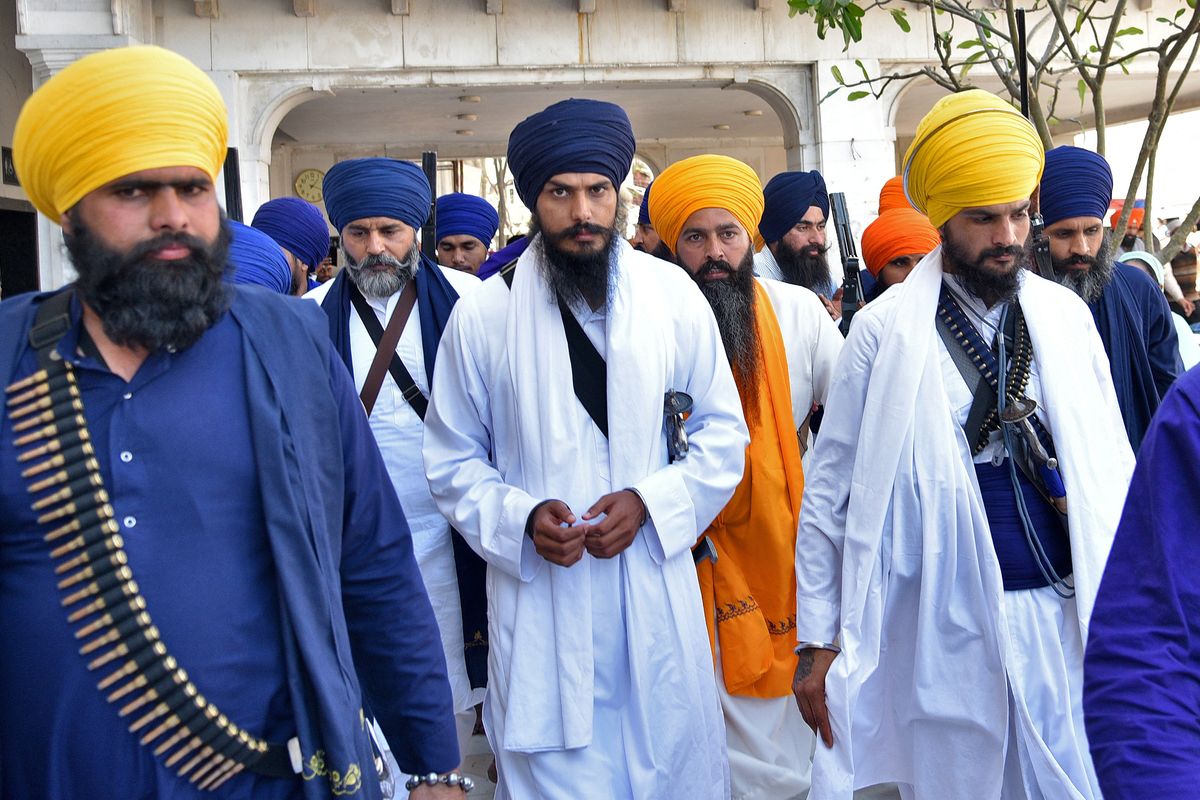India cuts Punjab internet for days while searching for a Sikh separatist
The Indian government has gotten a rep for shutting down the internet.

A few minutes every morning is all you need.
Stay up to date on the world's Headlines and Human Stories. It's fun, it's factual, it's fluff-free.
The backstory: At the end of February, internet advocacy watchdog Access Now reported that India had the highest number of internet shutdowns worldwide in 2022, and it's been at the top of that list for the past five years. The Indian government has gotten a rep for shutting down the internet in certain areas, often saying it's for security reasons. Under Indian law, government officials can order temporary internet suspensions in a public emergency. These restrictions are controversial and have been criticized as a way to silence dissent.
More recently: Recently, Indian authorities have been looking for Amritpal Singh, a leader in the separatist Khalistan movement. This movement wants Khalistan to be its own state for people in the Sikh religion. Singh is wanted for causing trouble with public harmony.
Authorities say he's been building up a private militia and also freed a key supporter, Lovepreet Singh Toofan, from police custody in February by storming the police station and demanding that Toofan be let go. He also apparently threatened the home minister, Amit Shah.
The development: Since Saturday, the Punjab state government has shut down the internet in the region as authorities look for Singh. Originally the shutdown was supposed to be just 24 hours, but it's been extended a few times and is still ongoing. There are 27 million people in Punjab, and they don't have mobile internet access or text messaging.
The internet ban has been partially lifted but only in parts of the state. The government and police officials say the shutdown is meant to avoid public unrest and the spread of misinformation and "fake news" during this time.
Key comments:
"An internet shutdown essentially is a suspension of the fundamental rights of citizens … It's really worrying how governments don't take this seriously," Nikhil Pahwa, the founder of Indian tech policy outlet, Medianama, told Forbes. "The reasonable cause for internet shutdowns … would be public order. But that has to be based on an assessment that there is clear and present danger to life and liberty of citizens and there is a rational nexus between that … and the internet functioning."
"Singh's detention may be used to orchestrate a false encounter and facilitate his extrajudicial murder," said the World Sikh Organization of Canada (WSO) in a statement on Sunday.




Comments ()